All the Answers
Well-known member
The fight broke out in transport unionism: despite the announcement by the head of the CATT, 10 unions said they will stop on Monday - Infobae

Source:
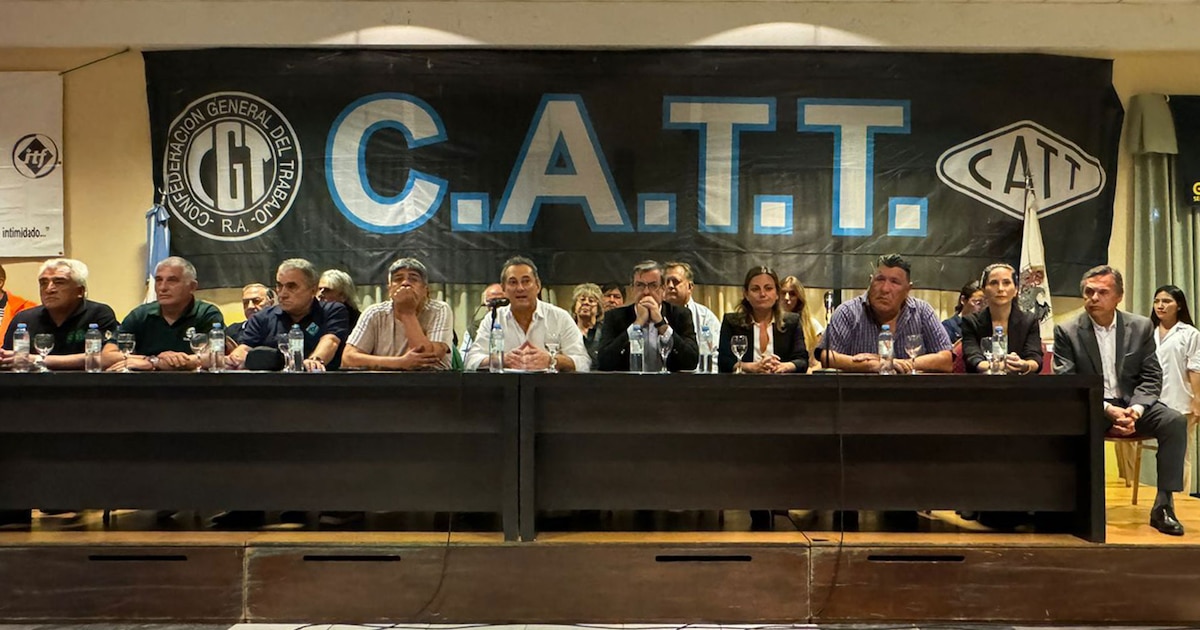
Estalló la pelea en el sindicalismo del transporte: pese al anuncio del titular de la CATT, 10 gremios dijeron que pararán el lunes
Dirigentes de Camioneros, Aeronavegantes, metrodelegados y organizaciones marítimas desautorizaron a Sergio Sasia y confirmaron que las asambleas previstas interrumpirán los servicios. El jefe de la CATT explicó por qué no habrá huelga ferroviaria
May 02, 2024
Leaders of Truckers, Aircraft Workers, metrodelegates and maritime organizations disavowed Sergio Sasia and confirmed that the planned assemblies will interrupt services. The head of the CATT explained why there will be no railway strike
By Ricardo Carpena
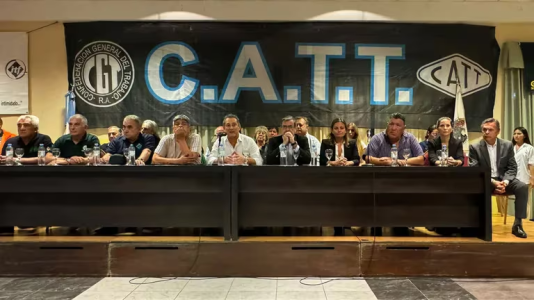
The leadership of the CATT, involved in a tough internal dispute over next Monday's measures
A harsh internal dispute at the top of the Argentine Confederation of Transport Workers (CATT), which was advancing in a secretive manner, broke out in the last few hours before the holding of a protest against the Government next Monday that consists of simultaneous assemblies: 10 unionists from the sector disavowed this afternoon to the head of the entity, Sergio Sasia, who had clarified that the measure "in no way represents direct action measures or a stoppage of activities" and assured that what was resolved was precisely " to hold assemblies in the workplaces with interruption of service of each and every one of the activities, from 8 to 11″.
The statement, on CATT letterhead, bears the signature of the deputy secretary of the CATT, Juan Carlos Schmid (Dredging and Beaconing); Omar Pérez (Truckers), Juan Pablo Brey (Aeronauts), Jorge García (taxi drivers), Raúl Durdo s (SOMU), Néstor Segovi a (metrodelegates), Graciela Aleña (roads), Marcelo Pariente (motorcycle drivers), Roberto Coria (guincheros) and Javier López (maritime pointers).
Hours before, Sasia (Unión Ferroviaria) had released a statement to clarify Schmid 's statements about the scope of the transport stoppage and stressed that the assemblies "in no way represent direct action measures or a stoppage of activities", although he admitted that had resolved that “each union or organization grouped in the CATT will establish the methodology to be carried out and report on it.” That text, its critics say, “ was never agreed upon” with them.
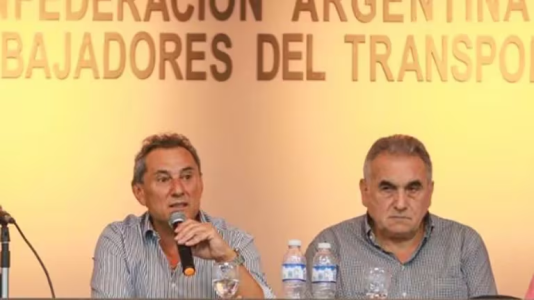
Sergio Sasia and Juan Carlos Schmid, increasingly opposed
Sasia's clarification originated from a misunderstanding that reveals differences between the leaders. In the last few hours, some media outlets have headlined that transportation will be paralyzed on Monday based on statements by Schmid : “On Monday, May 6, in the morning hours and around noon, activities in air and land transportation will be interrupted. , port and maritime in rejection of the tax agreement that once again sanctions the Income Tax.”
Schmid did not specifically mention the rail service, although it is true that it can be understood that it falls into the “land” category. The truth is that the 3 railway unions that make up the CATT (in addition to Sasia, the signalmen and those of the hierarchical staff) will promote worker assemblies on Monday that will not affect the train service and, instead, will hold a flyer among passengers , as a way to make their demands known without causing disruption to users.
At the end of March, when the national plenary session of the CATT resolved a plan to fight against the Government, it did not specify a stoppage of activities, but rather “simultaneous scheduled assemblies in the work sectors” that, as is traditional, in practice would end up complicating or paralyzing normal service on trains, planes, subways, ships and cargo trucks. A kind of covert strike that was the formula to satisfy the dialogueists, led by Sasia, in favor of maintaining a prudent attitude towards the ruling party, and the most combative, like Schmid, supported by the Truckers Union (through Omar Pérez) , the aeronautical, maritime and subway unions.
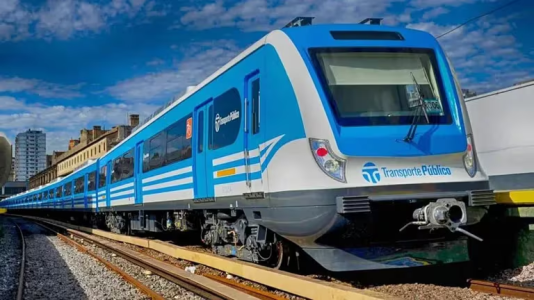
The 3 CATT railway unions will not strike this Monday
Schmid arrived at the plenary session, held at the Federation of Taxi Workers, with the idea of proposing to those present to carry out a transport strike and the proposal gained consensus, but in the previous meetings an internal agreement was reached due to the differences that existed. and the intermediate alternative of promoting assemblies was chosen . According to Sasia's critics, both in the plenary session and in a small table meeting it was clear that they would include "the interruption of services."
Obviously, this is not a semantic issue or confusing interpretations, but rather deep differences between the transport union leadership on the strategy against the Government. In an interview with Infobae, on March 22, in the midst of the CGT's lack of definition about a new strike and before the CATT plenary session, Sasia made his moderate position clear: " We must be wise and prudent, said the general (Juan Domingo Perón). We never rule out a measure, but we are not analyzing it at this time,” he said about what the transportation entity would decide. And regarding the Cegetista protest, he stated: “I don't know who is aiming for a general strike. There are direct action measures from some unions, which in most cases are due to joint agreements or staff reduction, but they are very few. There is a different scenario, a different logic. “We have to be cautious.”
Now, in dialogue with this medium, the secretary general of the CATT energetically denied “different reports through the media that claimed that transport would stop activities on Monday the 6th” and assured: “The plenary session of the CATT and the Board of Directors never decided to carry out a measure of direct action or stoppage of activities.”
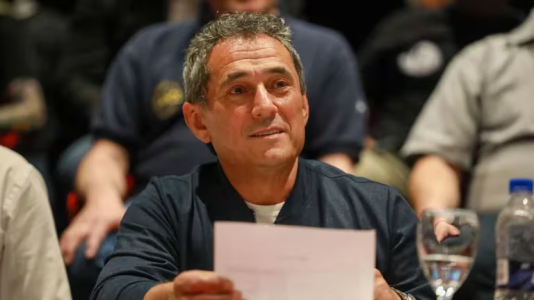
"We are going to do an activity to get closer to the user without hindering the normal operation of the trains," said Sergio Sasia.
—However, you decided to hold simultaneous meetings of the transport unions and it was known that, in practice, they were going to become work stoppages.
— Each organization, within the scope of its competencies and in the context in which it exists, will implement its methodology. In the case of the trains, we will hold assemblies that will not affect the normal operation of the train service, like other activities that I have been told will do the same. One cannot speak on behalf of 42 unions, but in the CATT plenary session it was decided to carry out assemblies and never a measure of force.
— So, in some transport sectors the service will be paralyzed and in others it will not.
—I cannot speak for another organization. Yes, I can speak for the train service and for the other two unions that make up CATT that are railway workers. In addition to the assemblies, we are going to do a flyer activity on Monday to raise awareness about our position and to get closer to the user without hindering the normal operation of the trains.
— Does the CATT statement to clarify that there will be no work stoppage respond to the internal differences that exist between you about the way to protest against the Government?
— Within the Board of Directors and in a plenary session we decided on an agenda that was made known and in which one of the points were the assemblies. Afterwards, how this information was distorted escapes me. What we want to clarify is that at no time was a transport stoppage ordered.
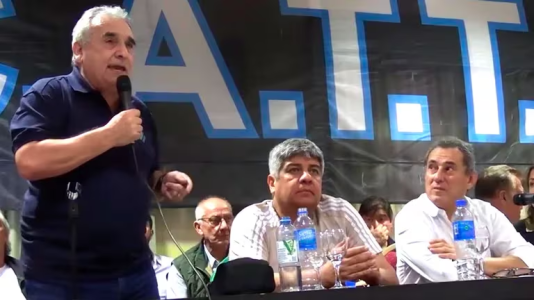
Juan Carlos Schmid speaks at the CATT plenary session, accompanied by Pablo Moyano and Sergio Sasia
— It is not usual for a transport union not to do strikes thinking about the passenger.
— Yes, we know that it would greatly hinder the normal operation of the trains and that the millions of users who use the railway have to get to their workplaces. That is why we are not going to take an action that affects the normal operation of the trains, taking care of the user and defending what the railway is as an important transportation tool for both passengers and cargo. Soon we will present a project to develop the railway system for the 21st century. It is important to carry out a discussion on this issue from the unions.
—Is the decision to hold assemblies without paralyzing the trains next Monday also a sign of good will towards the Government?
— No, it is an important decision to make, but it does not affect the lives of train users. We always prioritize dialogue above all things. If we have a proposal for this very important tool that is the railway, we must prioritize dialogue. Today there is a lot of talk about privatizations, about concessions from different companies, and we have our opinion on the matter. That is why we are committed to dialogue and the search for consensus. In this context, we interpret that these assemblies do not have to affect the life of the user and we must make known what our vision is, what our claims are and what our contributions are. The representation of workers not only involves claims but also proposals.

